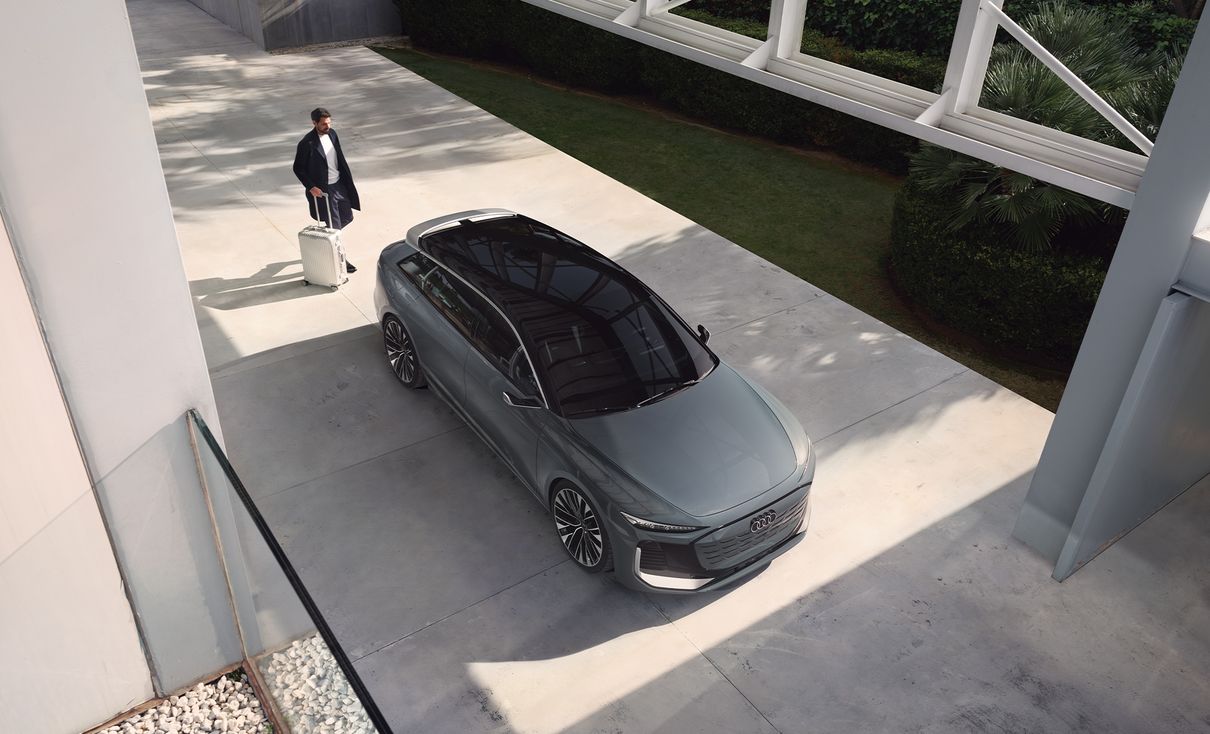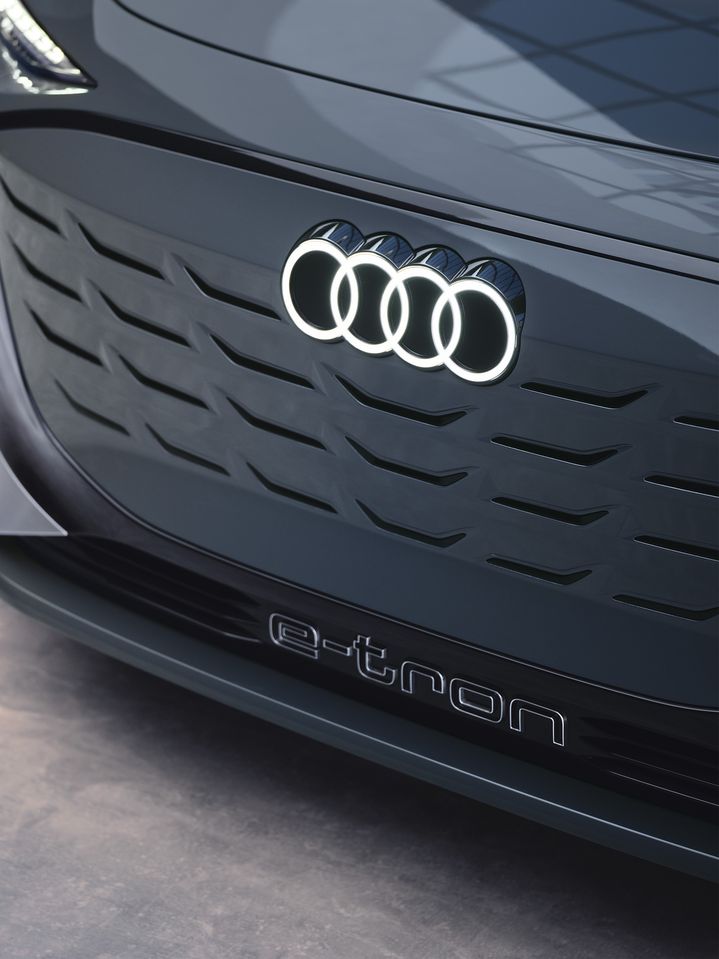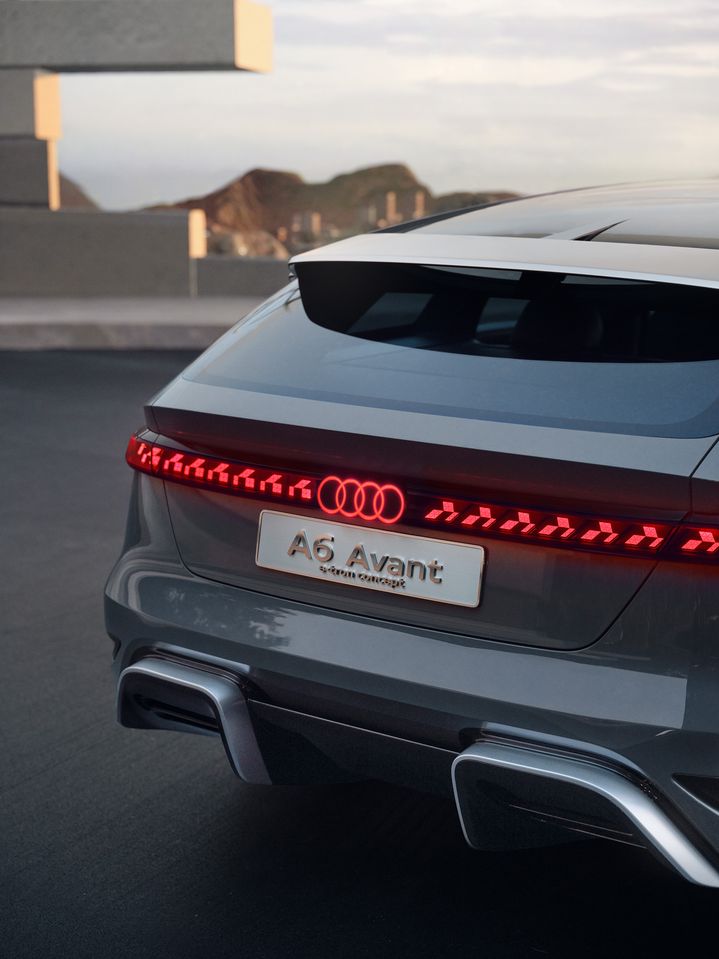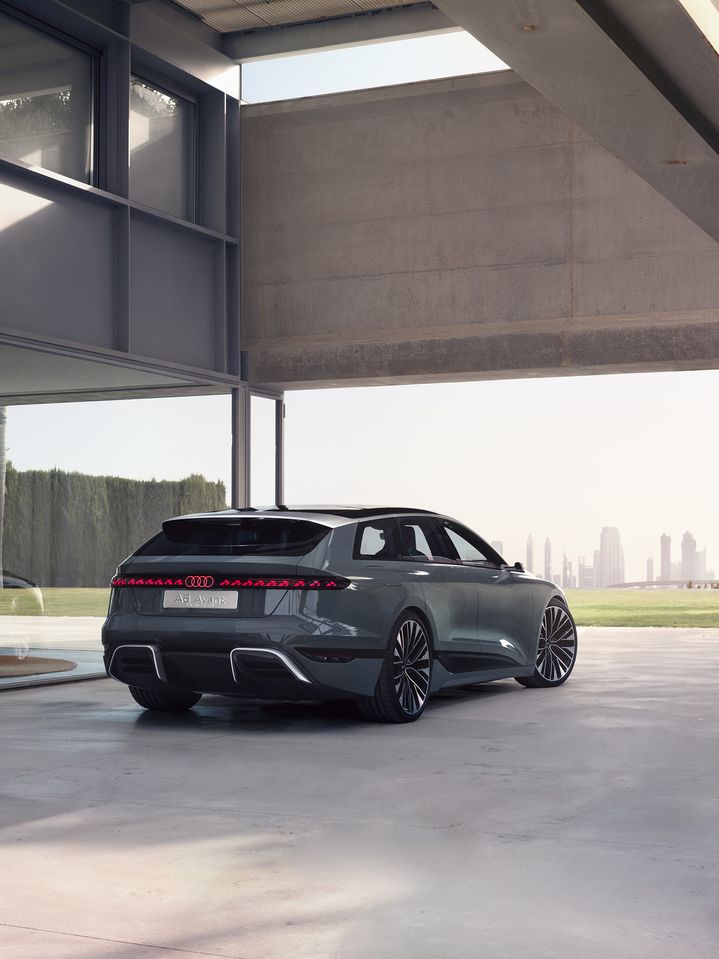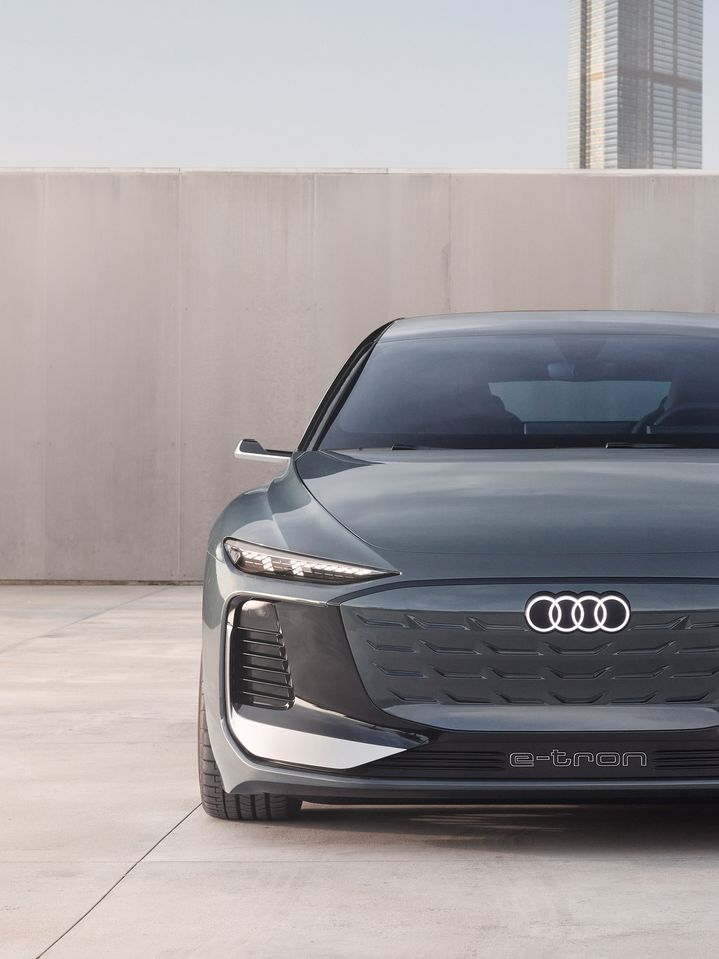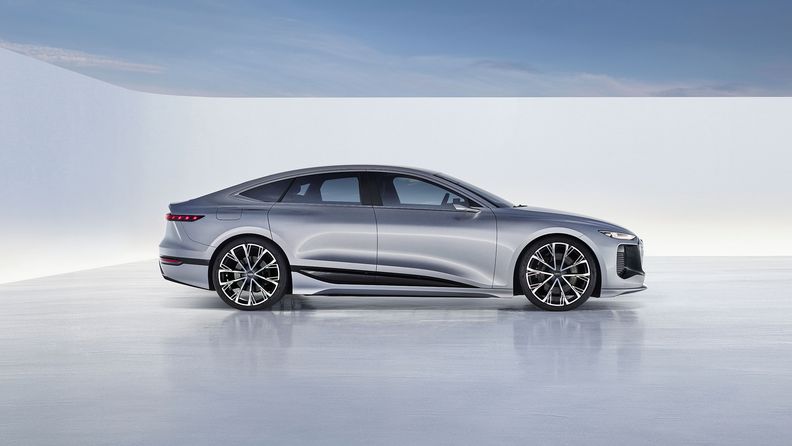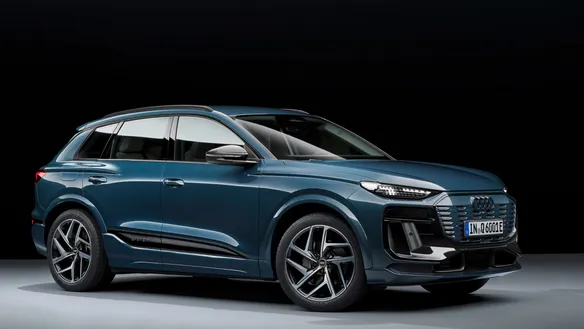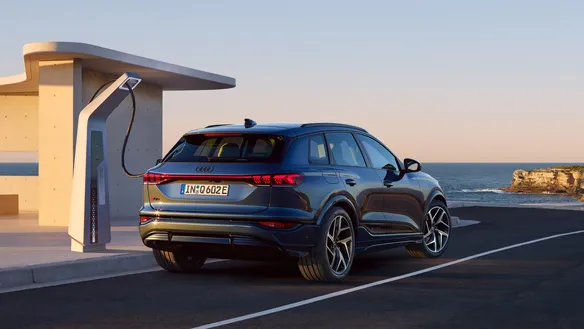Tomorrow’s Avant
¹The vehicle shown is a concept vehicle that is not available as a production vehicle.
¹The vehicle shown is a concept vehicle that is not available as a production vehicle.
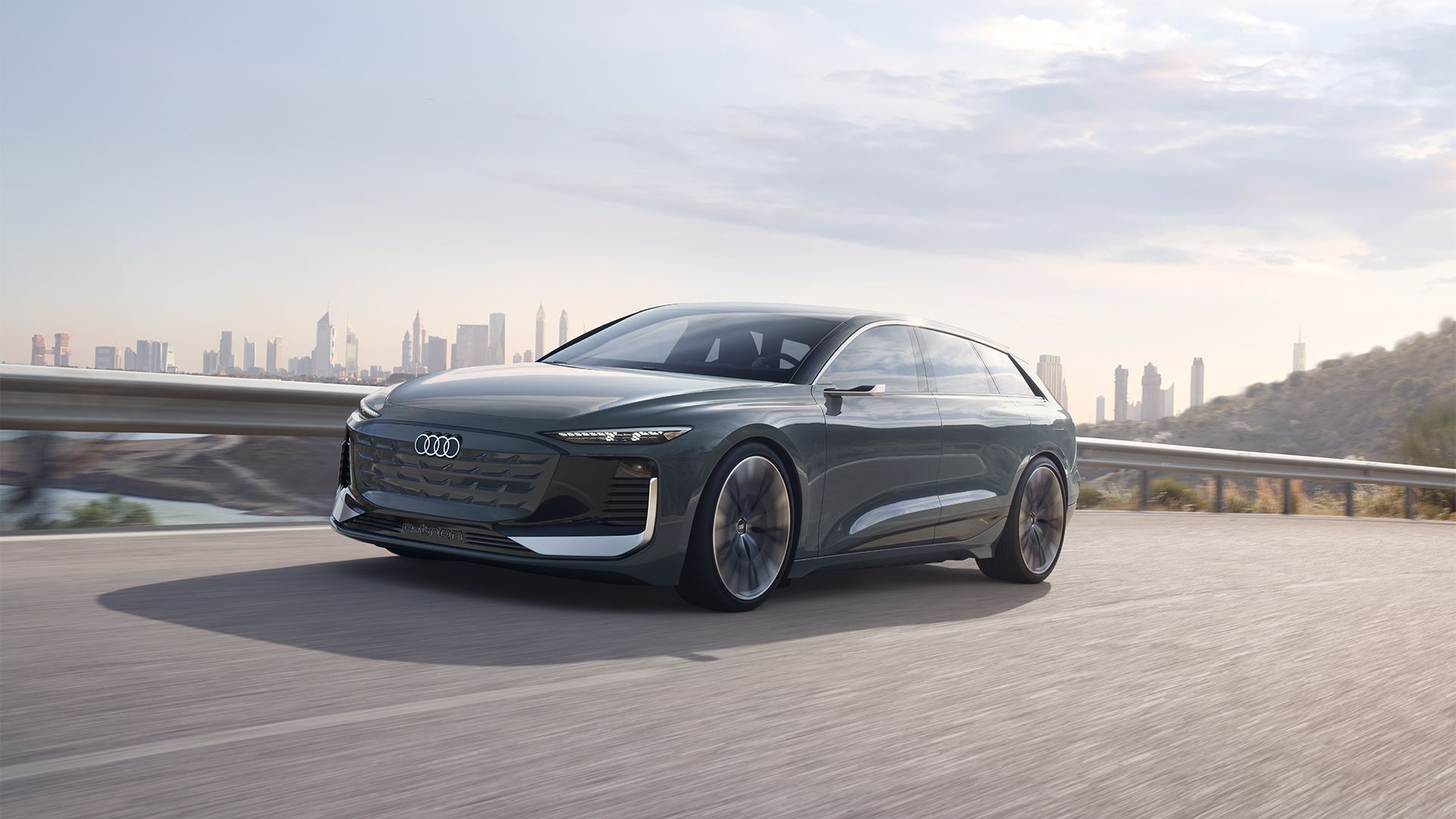
¹The vehicle shown is a concept vehicle that is not available as a production vehicle.
¹The vehicle shown is a concept vehicle that is not available as a production vehicle.
The all-electric Audi A6 Avant e-tron concept¹ is the new precursor to tomorrow’s electrically driven Audi A6 family. While the version of the Audi A6 e-tron concept¹ unveiled in 2021 was a Sportback, this study is an Avant. As the name implies, the main focus is on everyday functionality wrapped up in an elegant package.
Design in the bloodline
While the Audi A6 Avant e-tron concept’s¹ design testifies to its pedigree as a member of the successful Audi A6 model series, it also proves how the series can make an evolutionary leap into the e-tron era. This is evident in details such as the continuous light strip at the rear as well as the large, enclosed Singleframe grille whose lower edge is flanked by air intakes set close to the ground that cool the drive, battery and brakes.
Since the design shies away from hard edges, shadows cast by the Audi A6 Avant e-tron concept’s¹ convex and concave contours segue seamlessly. The pairing of 22-inch wheels and short overhangs with a flattened cabin and wide Avant roof arch give the vehicle a sporty look and feel. In signature style, the flat roof arch with angled D-pillar rakes down to the rear. Much like the Audi A6 Sportback e-tron concept of the same size, this study’s 4.96-meter-long, 1.96-meter-wide and 1.44-meter-high body positions it in the automotive executive class.
The Audi A6 Avant e-tron concept¹ packs a streamlined form that has undergone wind tunnel testing. In fact, elegance is only half the appeal of the car’s athletic proportions and lines culminating in the signature Avant rear. They also add up to a drag coefficient of 0.24 – just two hundredths more than the Sportback despite the Avant’s trademark high roof line. The minimal air resistance means energy consumption is reduced, which can in turn have a positive effect on range.
¹The vehicle shown is a concept vehicle that is not available as a production vehicle.
¹The vehicle shown is a concept vehicle that is not available as a production vehicle.
The Audi A6 Avant e-tron concept¹ hints at the future scope in terms of electric range.
¹The vehicle shown is a concept vehicle that is not available as a production vehicle.
¹The vehicle shown is a concept vehicle that is not available as a production vehicle.
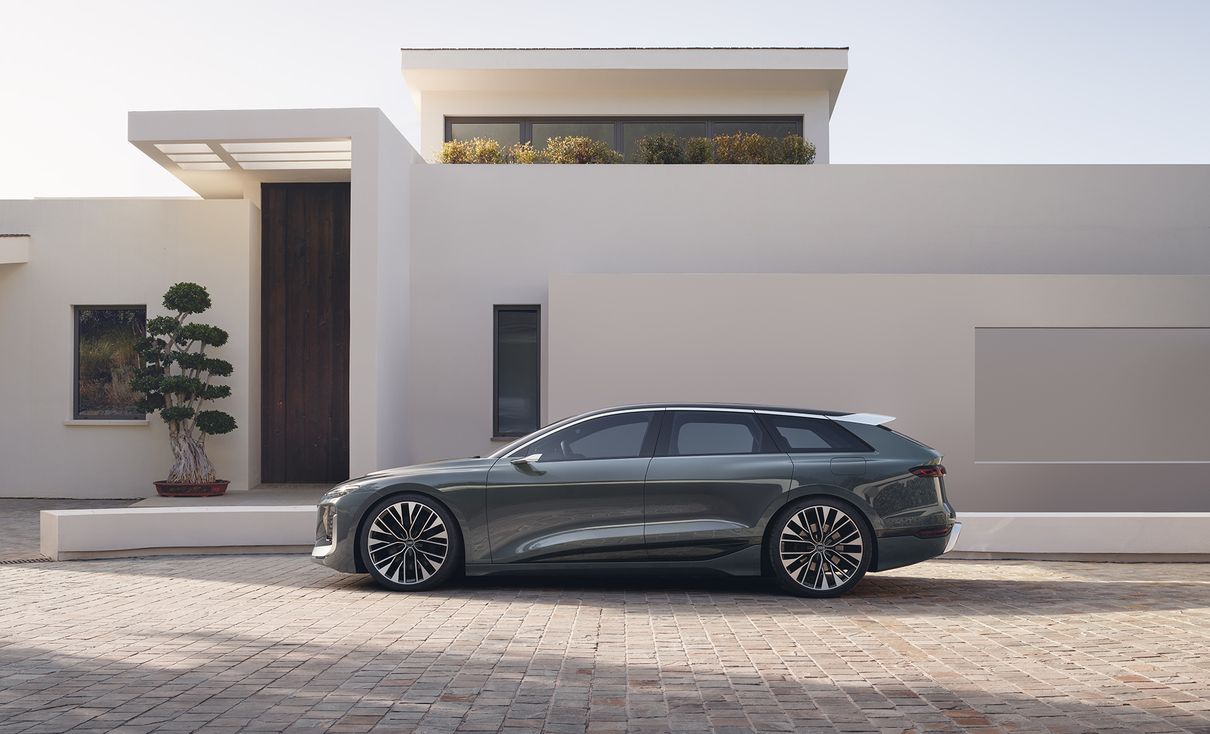
¹The vehicle shown is a concept vehicle that is not available as a production vehicle.
¹The vehicle shown is a concept vehicle that is not available as a production vehicle.
An electric platform makes it possible
In response to this hot-button issue for electromobility, the Audi A6 Avant e-tron concept¹ hints at the futurescape of electric range for tomorrow’s production vehicles. Depending on the drive and model variant, a production version based on the Audi A6 Avant e-tron concept¹ could deliver a range of over 700 kilometres (according to the WLTP standard) going forward. The Audi A6 Avant e-tron concept¹ has an 800-volt system and a charging capacity of up to 270 kilowatts. These promising prospects are possible thanks to the new Premium Platform Electric (PPE). Located between the axles, a scalable battery module that can be adapted to the motor requirements forms the heart of this forward-looking solution on which the Audi A6 Avant e-tron concept¹ is also based. Thanks to variable sizing, less powerful models can be equipped with a smaller, lighter battery. What’s more, making use of the entire vehicle base provides a comparatively flat layout for the battery. This is not only essential for vehicles with dynamic architecture but also enables quattro drive. On the exterior, a black inlay highlights the battery housing above the rocker panel that connects the wheel arches.
¹The vehicle shown is a concept vehicle that is not available as a production vehicle.
¹The vehicle shown is a concept vehicle that is not available as a production vehicle.
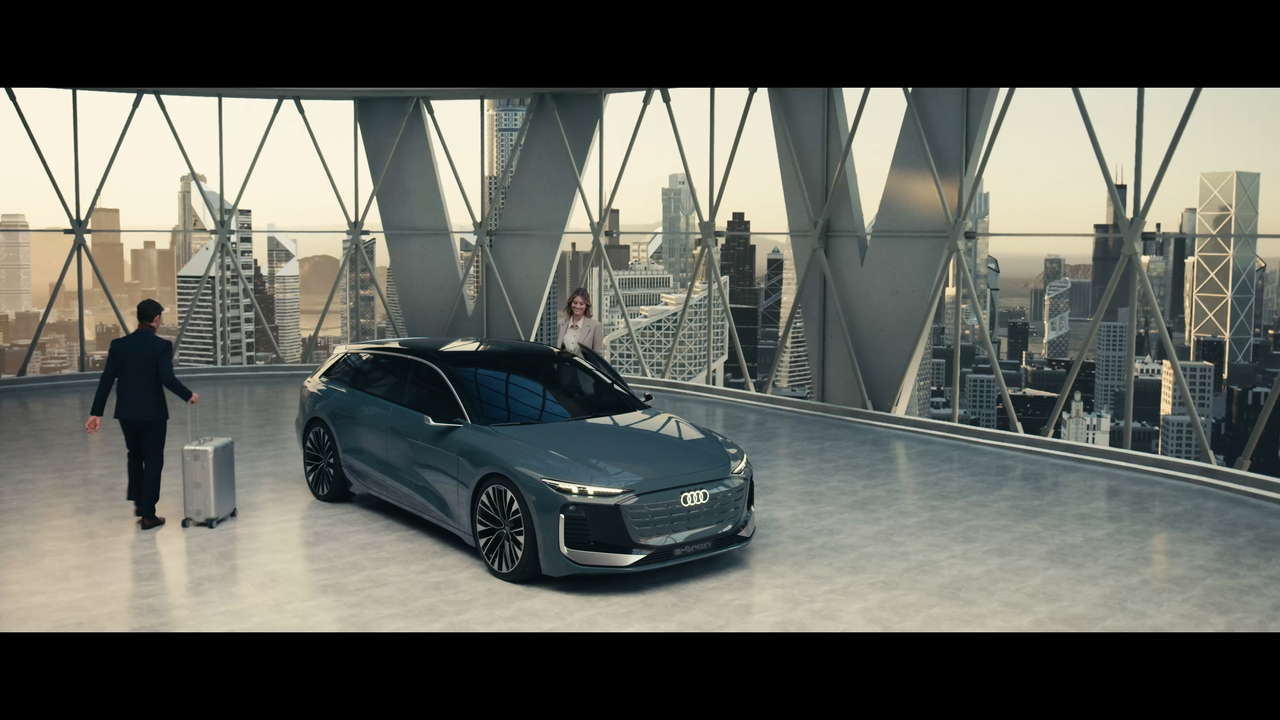
The three-dimensional architecture of the digital OLED elements creates striking spatial effects.
¹The vehicle shown is a concept vehicle that is not available as a production vehicle.
¹The vehicle shown is a concept vehicle that is not available as a production vehicle.
Illuminating lighting technology
Digital matrix LED and OLED technology is not only compact in size but also lends both headlights and taillights a high degree of brightness as well as multifunctional features including customizable light signatures. Thanks to three high-resolution LED projectors on the body, the car can project light animations onto the ground that serve as a greeting to occupants or warning symbols alerting road users. Another four high-resolution LED projectors at the vehicle’s corners function as turn signals. If, for instance, the Audi A6 Avant e-tron concept¹ is parked in front of a wall during charging, the driver and passengers can pass the time playing a video game projected onto the wall by the digital Matrix LED headlights. At the concept car’s rear, a new generation of digital OLED elements integrated into the continuous light strip act as a display generating customizable digital light signatures and dynamic light animations. The three-dimensional architecture of the digital OLED elements creates light animations with striking spatial effects.
¹The vehicle shown is a concept vehicle that is not available as a production vehicle.
¹The vehicle shown is a concept vehicle that is not available as a production vehicle.
